Masterpiece
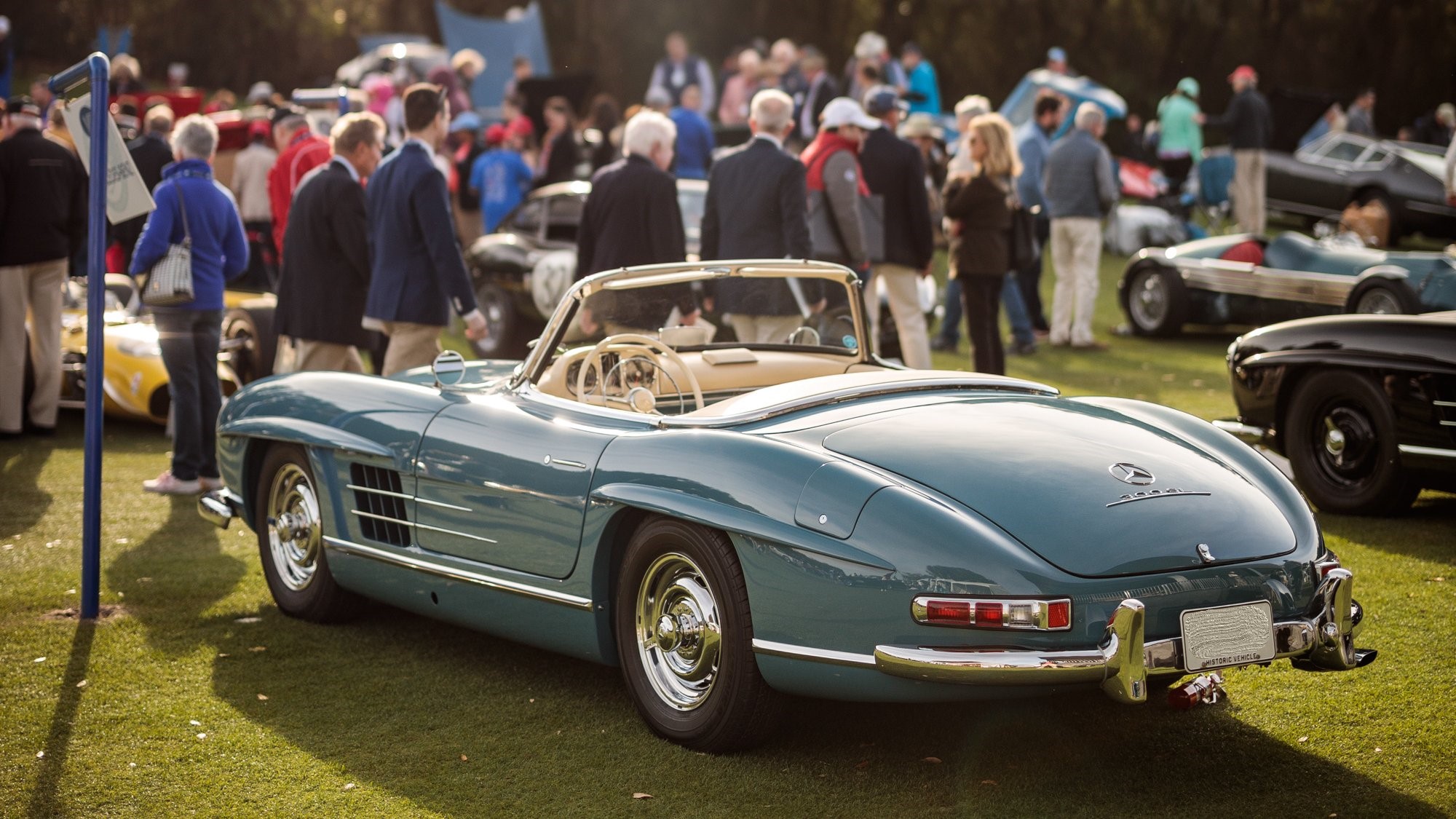
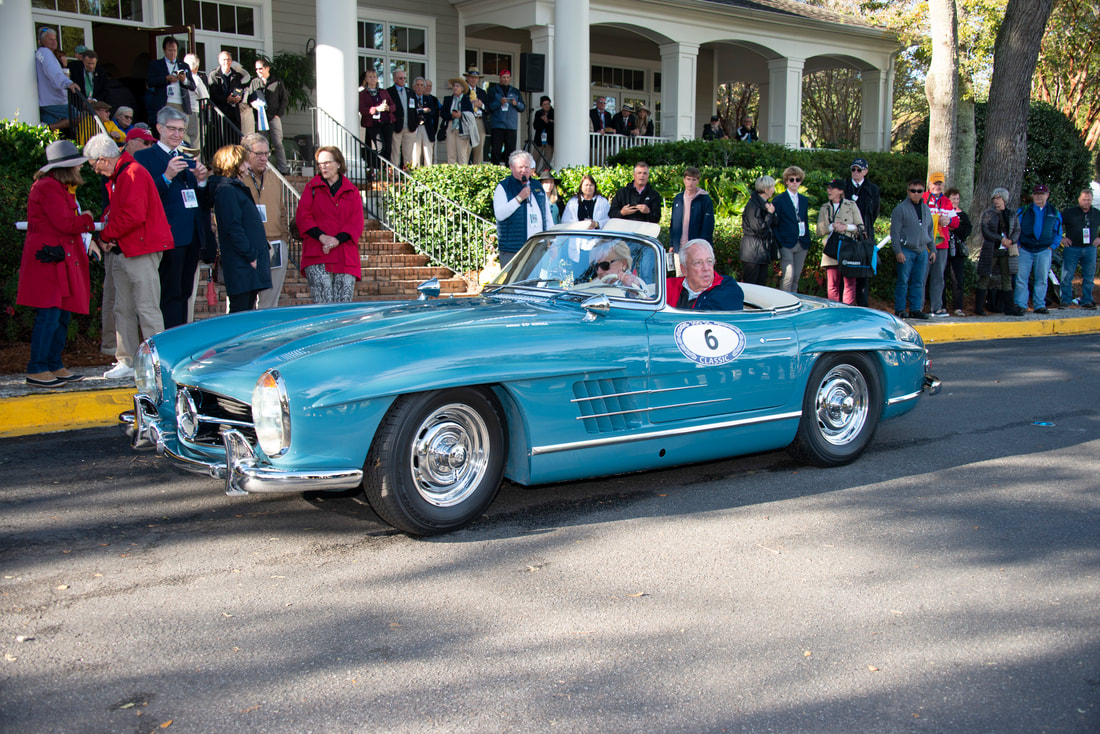
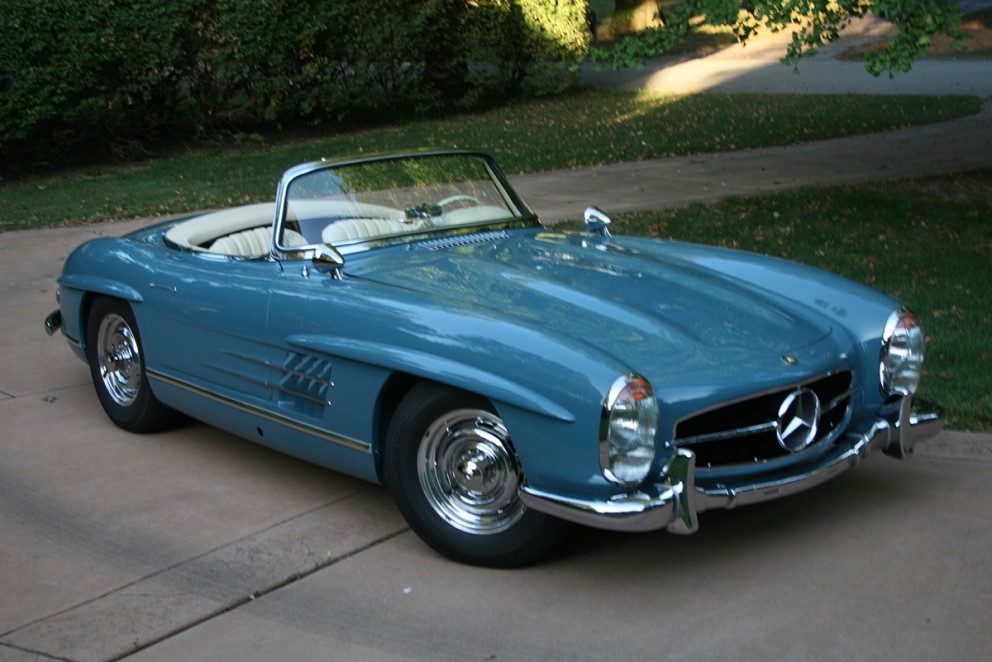
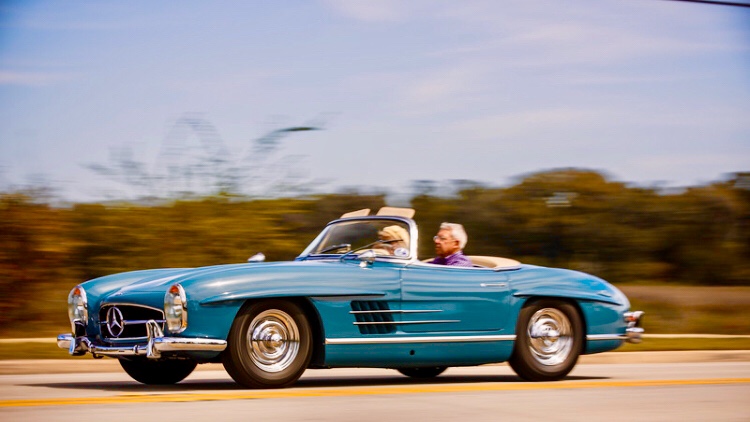
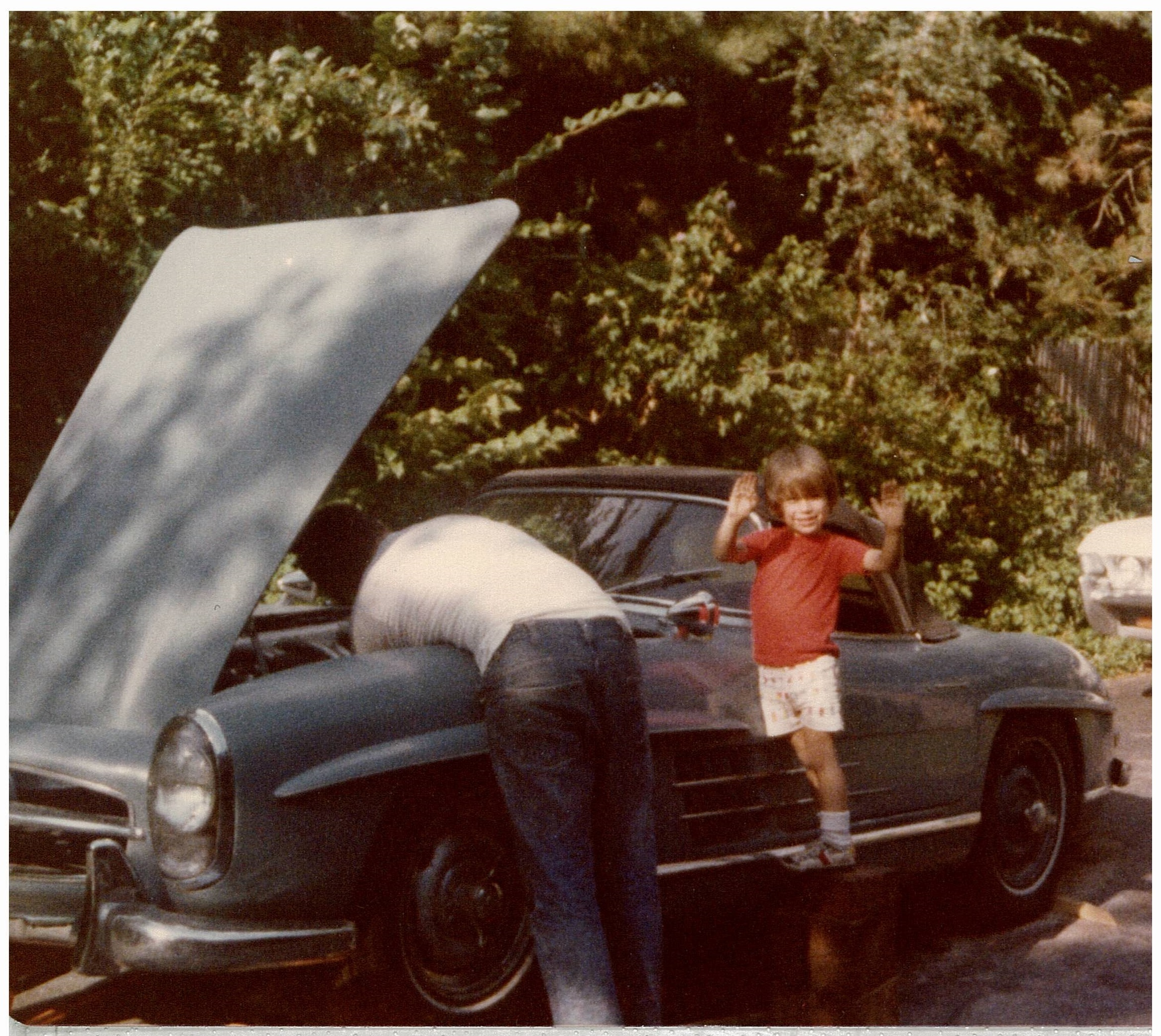
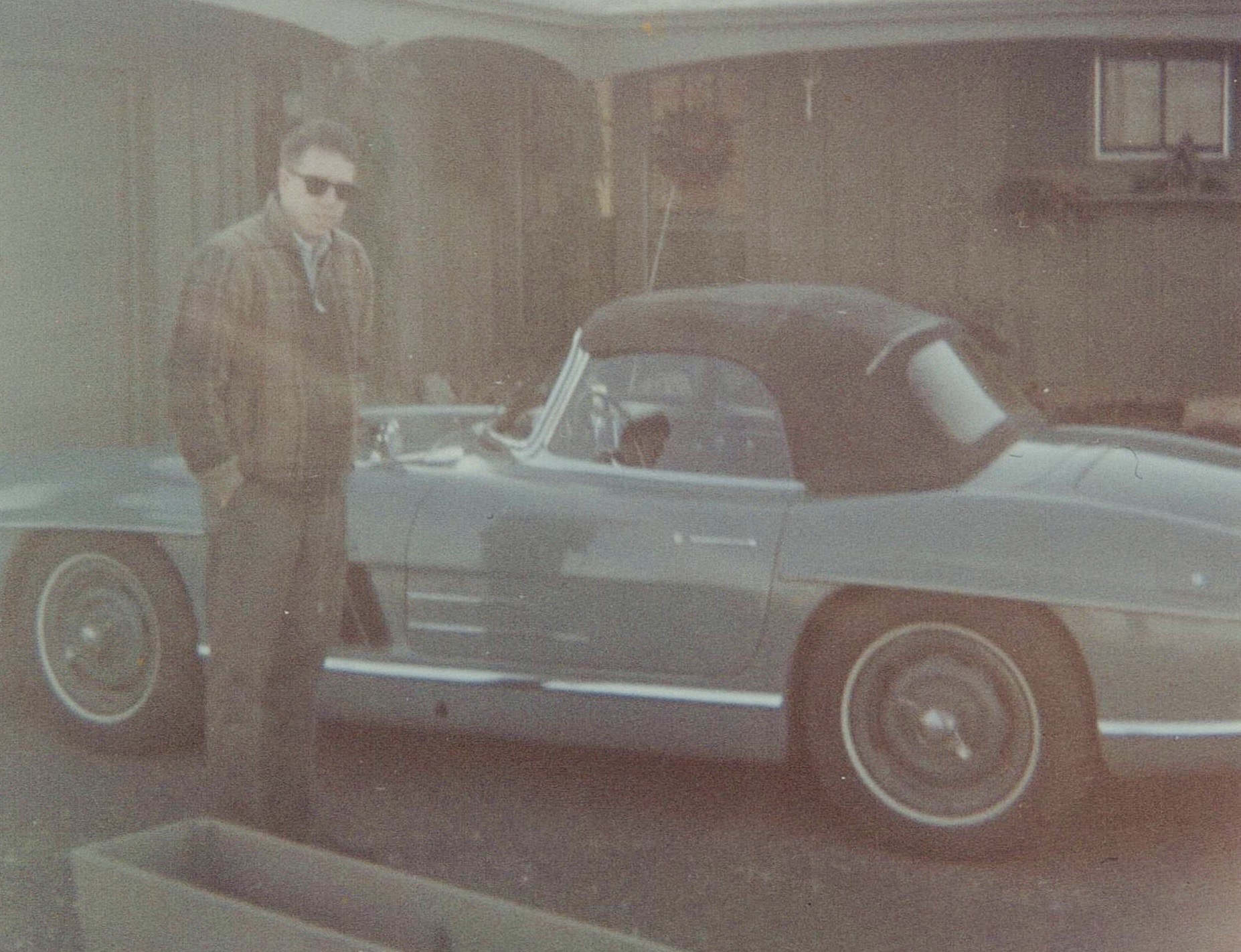
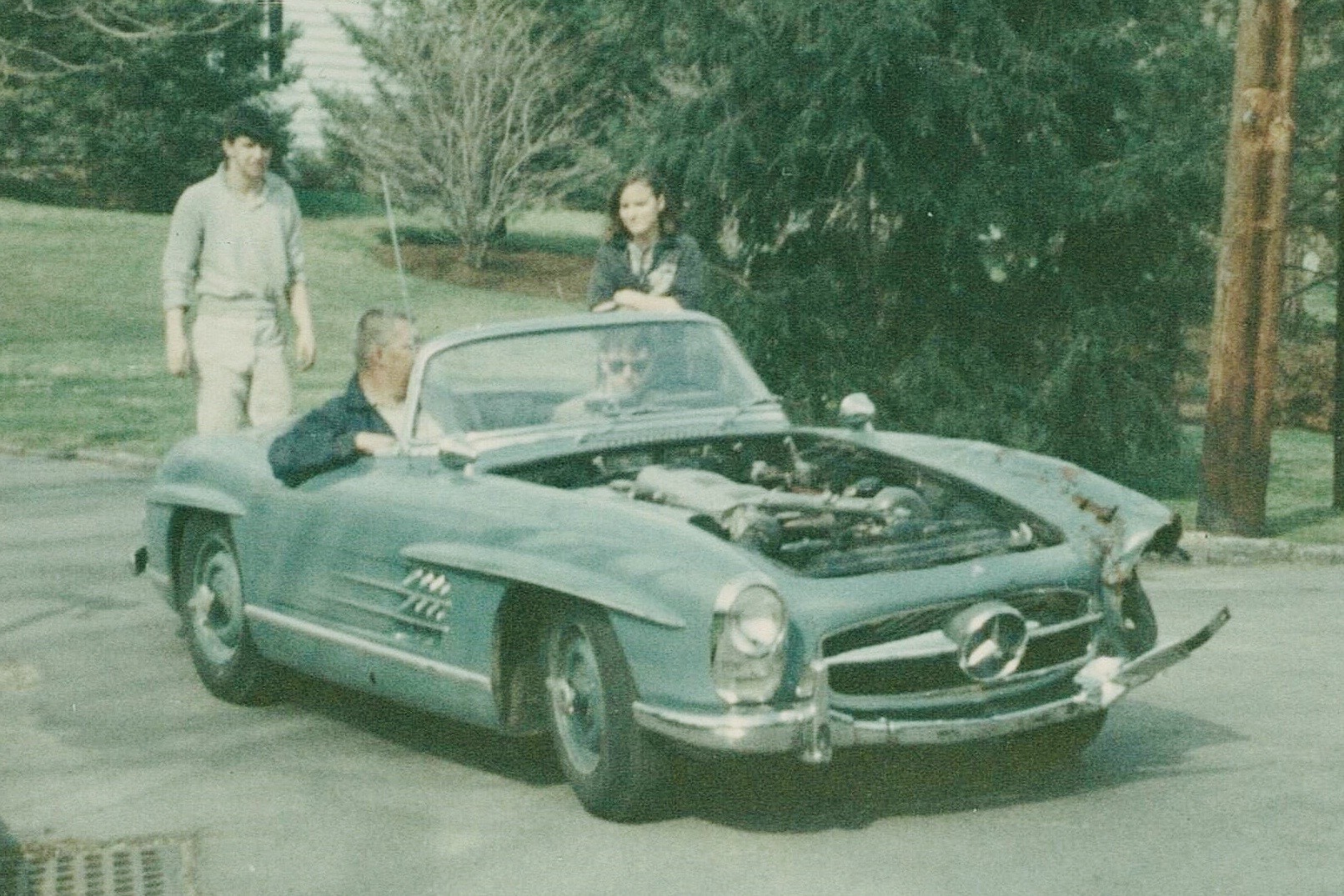







Long Term Love Affair
I have owned my 300SL for over 50 years. The car is a true masterpiece of engineering and style with a championship racecar pedigree. My 300SL is a true love affair for me.
Why I own it
When I was a teenager, my German father took the family to the Deutsches Museum where I saw the 300SLR and 300SL in cutaway form. It was an engineering masterpiece and I longed to study it in detail and hoped to drive one someday. I never dreamed I could own one.
In November 1966, a junior
When I was a teenager, my German father took the family to the Deutsches Museum where I saw the 300SLR and 300SL in cutaway form. It was an engineering masterpiece and I longed to study it in detail and hoped to drive one someday. I never dreamed I could own one.
In November 1966, a junior in college, and flush with cash ($1,400 from the sale of my Austin Healey 100) I drove to Nyack, New York, to Bob Grossman's looking for a project. There it was! A 300SL roadster with a damaged left fender, bumper, and suspension. The owner's home had burned and the keys were lost in the fire. He was a brain surgeon who parked it in Manhattan daily, which explained the assorted dings and dents. I couldn't start it (no keys), so I just checked to make sure the engine and transmission were present. Bon and I negotiated, and I bought it for $1,500.
Now that I owned it, reality set in. I had it towed to my roommate's parents' home in Bronxville, NY. My only tools fit in a hand-held Craftsman toolbox and my friends had never turned a wrench. The following weekend we jacked the car up and assessed the suspension damage. There we found a Hide-a-Key box with all the keys! We opened the trunk and there were several wrapped presents probably for Christmas. The suspension had one bent A-arm half and possibly a second. Bob Grossman mentioned Otto Vogler in Hackensack, NJ, for parts. He was invaluable. Otto was a factory mechanic specializing in 300SLs. He kept a vast inventory of parts to support the private entries of Paul O'Shea and John Fitch who were doing well in racing.
Otto invited me to his house where he enlightened me on the important and fine points of the car. It was obvious he was THE authority on 300SLs and instrumental in their racing success. With suspension parts in hand, I had to figure out how to install them without a spring compressor or tie rod separator. There were no Auto Zone or PEP Boys back then, so I improvised with C-clamps and U-bolts from the hardware store. Late Sunday, after changing the oil and checking all fluids, I drove the car back to school in Boston, exhausted but excited to drive such a masterpiece.
When I told my father during our weekly phone call he was in disbelief. He grew up in Stuttgart and even after working several years after college, he could only afford a used Opel. He said a Mercedes was for a wealthy person, not a student. He was sure that my grades would suffer, I would not graduate, and end up drafted in Vietnam. I reacted to his concern by studying even harder and graduated cum laude. After graduation my father and I drove the 300SL home to St. Louis and, though not a car person, he thought it a magnificent machine. After a short stint in the Army, Tina and I married, and the roadster became our daily driver.
Features I love
Since day one I have enjoyed working on nearly every aspect of this car. I maintain the car myself and have even rebuilt the engine.
The 300SL was a technological marvel of its time, with so many innovative features. From the super light "SL" Chromoly tubular racing frame to the mechanical
Since day one I have enjoyed working on nearly every aspect of this car. I maintain the car myself and have even rebuilt the engine.
The 300SL was a technological marvel of its time, with so many innovative features. From the super light "SL" Chromoly tubular racing frame to the mechanical direct fuel injection, the 300SL was capable of reaching a top speed of up to 163 mph (263 km/h). It was the fastest production car of its time and was voted the "sports car of the century" in 1999.
What it's like to drive
Driving my 300SL is always exhilarating to me. Packed with memories, my wife and I have had this car since we got married.
History and other details
About 14 years ago I initiated a “refreshing of the car”. I never intended initially to make it a “show car” but as disassembly progressed it became apparent that removing the body from the frame would greatly simplify replacing the wiring harness as well as the leather. Internet reading and disc
About 14 years ago I initiated a “refreshing of the car”. I never intended initially to make it a “show car” but as disassembly progressed it became apparent that removing the body from the frame would greatly simplify replacing the wiring harness as well as the leather. Internet reading and discussion with Gullwing Group members proved this was more difficult with the roadster than the coupe. My oldest son, Fritz, and I fabricated a structure to bolt across the door openings joining the top mounts to the windshield frame mounting holes. This worked well and facilitated an easy and safe removal of the body. Now the car was easy to work on.
I removed every component, nut, and bolt. I sent the frame out to have it soda and fine sandblasted as necessary. While it was being painted, the rear axle and transmission were sent to Brooklyn Motoren Werke in Wisconsin. They replaced all bearings, synchronizers, seals, and any worn gears. The block was bored 0.010 inches oversize to accommodate OEM Mahle pistons one size over. All valve guides and intake valves are new as well as bushings which were honed to fit new rocker shafts. All adjusting valve lash adjusting screws were replaced. The block was carefully cleaned with oil passages then flushed at high pressure with solvent. The water jackets and block interior were painted with Glyptal. All freeze plugs were replaced. Both oil pumps were rebuilt. All timing gears and chain sprockets are new.
I carefully reassembled the engine using the best assembly lube. All torque values were checked and double-checked. A somewhat hidden modern ignition is installed while the original coils remain in place. The entire injection was rebuilt by Gus personally at Pacific Fuel Injection. A new clutch, pressure plate, and throwout bearing were installed. All the instruments were rebuilt by Palo Alto Speedometer. I installed a complete wiring harness from Rhode Island Wiring Service with all new proper grommets. Before the frame had any heavy components installed I put a pint of linseed oil into the tubular frame through the small screw holes where the ground wires attach. With the help of both sons, we rotated the frame to spread the linseed oil into all the frame tubes' interiors. I then installed the major components. The brakes received all-new wheel and master cylinders. New hoses and a new ATE booster were installed.
My wife and I decided the car should resemble its exact appearance as it left the factory in 1957. The paint match was done initially by computer to Mercedes Hellblau #334 with a final match to the backside of the glovebox door. The car was painted by Advanced Color Tech in St. Louis, Missouri. The leather is Bavarian bull hides in Mercedes Weiss #1097 from Aristo. I worked with two Gulfstream Jet aircraft leather craftsmen in our garage on weekends doing the installation. Together we also installed the original Mercedes Beige #702 cloth top and blue square weave carpet all supplied by Klaus Hermann Mayer in Germany. The Rudge wheels were rebuilt by Bob Shortmann in Arizona. Discussions with GWG members during the restoration lead me to believe this car is unusual and very likely a Mercedes Standwagen (show car). I believe this to be true for the following reasons:
- The car was shipped to the USA in 1957 through Studebaker Packard in South Bend as the agent.
- The car remained the property of Mercedes/Studebaker until its sale in 1959 to Dr. Greenberg.
- During this period it likely appeared in several car shows.
- A man I met at a GWG convention saw an identical car at the New York Auto Show, probably this one.
The white leather interior was not a standard Mercedes color in 1957. The car has many unusual features such as driver-operated shades to cover the oil cooler and/or radiator, a passenger-side Talbot mirror, and a passenger-side outside door lock. The most obvious feature is the factory polished engine. I have had some of the engine parts re-chromed and polished the aluminum castings to clean them but did not plate or polish anything that was not in that condition when I purchased the car in 1966.
Accolades
Best in Class, Sports Cars International - Hilton Head Concours, 2021
People's Choice, Hilton Head Concours, 2021
Best in Show, Natchez Euro Fest Vintage
German Open Best in Class, Natchez Euro Fest
Entrant, 2020 Amelia Island Concours
Numerous awards at local and regional events
Car Clubs
Gull Wing Group International
Mercedes-Benz Club of America
The details
1957
year
Mercedes-Benz
make
300 SL (W198)
model
Roadster
Body Style
334 Hellblau (Light Blue)
Exterior color
1097 Weiss (White) Leather
Interior Trim
3.0 liter straight-six w/Bosch mechanical direct fuel injection system
Engine / Motor
4-speed manual
Transmission
RWD
Drivetrain Layout
240 hp @ 6,100 rpm
Horsepower
35,000 miles
Odometer
Concours Award-winning
Condition
$10,950
Price New
Priceless
Value Today
618 Roadsters were produced in 1957 of 1,858 total Roadsters ever produced out of West Germany - Stuttgart-Untertürkheim
Production Figures / Location
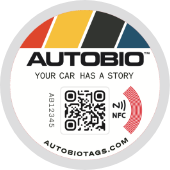
Discussion
0 comments
Sign up to leave a comment.